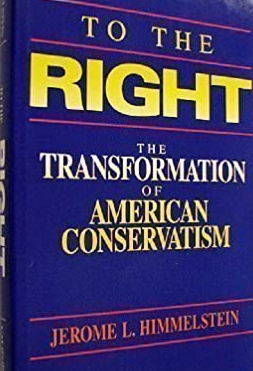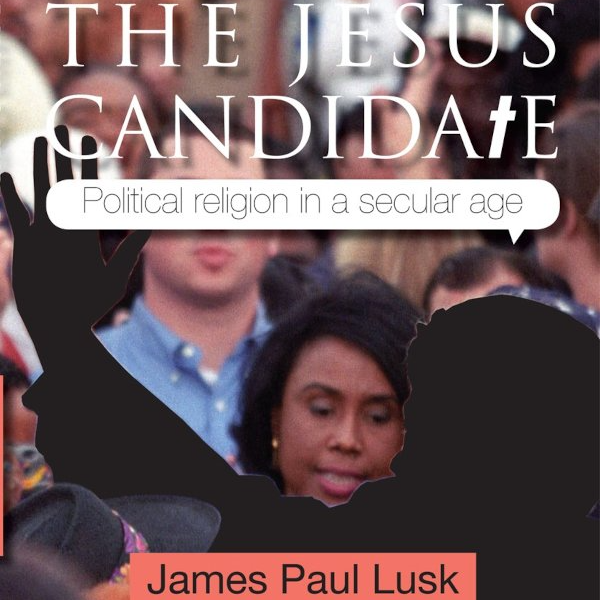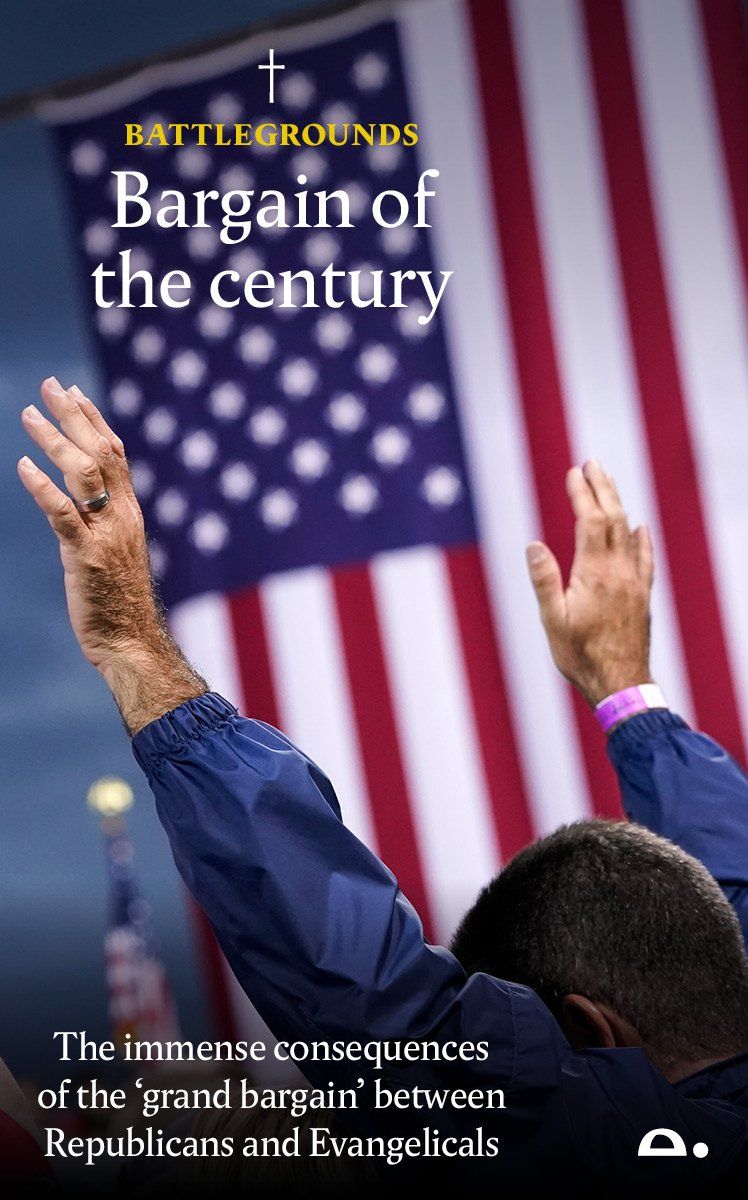What makes the Religious Right?
The Religious Right is a movement with a mission - to restore Christian supremacy in politics, law and culture. Unless it succeeds, it claims, the liberal, secular state will persecute Christians. ‘The Jesus Candidate’ explains this movement’s defining ideas, through its rise in America and its spread to Britain.
My book challenges the Religious Right’s appraisal of modern politics. It analyses cases said to show that the law and the courts are anti-Christian, and disputes the claim that Christianity needs special legal protection or privilege. Liberal, secular politics results from applying New Testament principles and practice to church and state.
Here’s a force which has given us Presidents Ronald Reagan, George W Bush and Donald Trump. The latter two were elected (in 2000 and 2016) on a minority of the popular vote, thanks to locally concentrated evangelical presence. Arguably this formation bears responsibility for such disasters as the Iraq War and the failure to tackle climate change. Yet its roots are understood neither in its American homeland nor elsewhere, though its consequences are felt around the world. What is this movement? How did the ‘grand bargain’ between evangelicalism and the Right come about? And what happens next?
Picture: CNN
For decades now the Religious Right has besieged us with claims that the modern state is not a legitimate institution. The legitimacy of the state is what endorses, in the minds of citizens, its right to the exclusive use of force – the defining characteristic of the state. Once this legitimacy is doubted, some will think it right to use force themselves against the state. They are likely to make common cause with others who share this disruptive ambition, even though they differ in their hopes for the result.
What are the key ideas of the Religious Right?
The Religious Right is a political movement concerned with the proper role and function of the state. Its key ideas are:
1. All law is religious in origin. From this it follows that
2. if the overriding law is not Christian, then the law in a secular society will necessarily become anti-Christian.
3. The proper role of the state (in Christian eyes) is to promote and sustain Christian domination of society and culture.
4. The state as it has emerged in the twentieth century, with its secular legal framework, is an anti-Christian institution, rooted in secular culture which permeates every aspect of society. Christians are to engage in ‘cultural war’ against rival claims to control of law, the state and social life.
5. The favoured legal system is ‘Judaeo-Christian,’ reflecting the eminence of Old Testament law in Religious Right thought.
6. The state’s role is limited to what is authorised in the bible, so the Religious Right overlaps with the ‘conservative’ idea of the limited state which, for example, does not interfere in the working of the free market and does not undertake functions (such as welfare provision) which can be provided through the market or voluntary endeavour. However, it is possible for Religious Right thinking to ‘stretch’ to accommodate welfare intervention.
7. Liberalism – meaning a system where the state treats all religious and other value systems equally – is unsustainable. Most on the Religious Right think it is possible to have a form of liberal ‘tolerance’ in a predominantly Christian society, but once society has given up on Christian dominance, there is no possibility of a liberal society.
Where do these ideas come from?
From two notable thinkers: Roussas John Rushdoony, author of The Institutes of biblical law (Philipsburg NJ, Craig press, 1973) and Francis A Schaeffer, author of A Christian Manifesto (Wheaton, Crossway, 1981). Both were Presbyterian missionaries whose outlook was shaped by their passion for the dispossessed and marginalised – Rushdoony worked with American ‘first nation’ peoples, and Schaeffer founded the international network l’Abri ('Shelter'). Both saw the restoration of biblical law as the solution to (as they saw it) the harshness and inhumanity of the secular state. They differed in their view of tolerance – Rushdoony thought that tolerance could only be temporary, a transitional stage between authoritarian systems. In his system, Christians must ‘reconstruct’ society under biblical ‘dominion’. Schaeffer was less authoritarian and more democratic in his thinking.
Is the ‘Religious Right’ the same as ‘Christian conservativism’?
Not necessarily. Traditional ‘conservative’ Christians reject much of what the Religious Right stands for. For instance, see Darryl Hart’s From Billy Graham to Sarah Palin: Evangelicals and the Betrayal of American Conservatism (Grand Rapids, Eerdmans, 2011) (reviewed here). Conservative Christians take a traditional - sometimes called ‘classical’ - liberal view of church/state separation, which the Religious Right does not share.
So when John Stevens (Director of the UK Fellowship of Independent Evangelical Churches) defended the pluralistic society with secular law as, at least potentially, serving Christians and others equally, Christian Concern (CC) accused him of advocating polytheism and idolatry. This accusation seems ridiculous, but makes sense if one understands the importance of Rushdoony in the CC’s philosophy (the Christian Institute, which is the other prominent UK Religious Right body, is more on the Schaeffer side of the debate over liberty in a pluralistic society)
How do we see the Religious Right in everyday politics ?
Religious Right politics is best known in the USA where a bloc vote works in the Republican Party: first, to select preferred candidates through Primaries, then to sway the result of the main election. This works from local grassroots right up to the Presidency. Originally this strategy was focused through the ‘Falwell-Weyrich’ deal which founded the ‘moral majority’ to remove Jimmy Carter and win the White House for Ronald Reagan. This is described in The Jesus Candidate and my article on the 'Deal of the Century' in the run-up to the 2020 election. The best book on this is Jerome L. Himmelstein To the Right: the transformation of American conservatism (University of California Press, 1989). The way this works in local congregations is examined in Lydia Bean: The politics of evangelical identity: Local churches and partisan divides in the US and Canada (Princeton UP, 2014) (see my review here).
In Great Britain (not including Northern Ireland), Christian political parties have little traction in electoral politics. The movement works especially by bringing legal cases designed to test and promote the idea that the secular state is anti-Christian. Chapter 2 of the Jesus Candidate takes a close look at some of these cases. Premier Christianity has since published my analysis of the case of Dr Mackereth. See also Tim Wyatt's Are Christians in the UK being persecuted? (June 2021). These cases often succeed in defending the rights of Christians in employment and the public arena. However this often succeeds in showing that the liberal society can, in fact, protect religious freedom. I share with John Stevens the view that Christians should, in politics, defend pluralism.
In continental Europe, the Religious Right is particularly manifested in the form of Religious Nationalism.
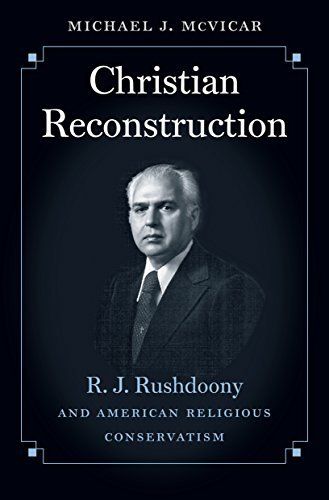
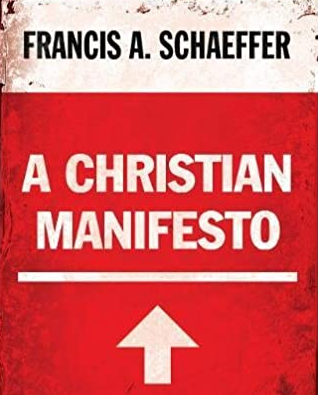
Some recommended texts to understand the Religious Right: Michael McVicar's biography of Roussas John Rushdoony; Francis Schaeffer's Manifesto; and Jerome Himmelstein's political history.
